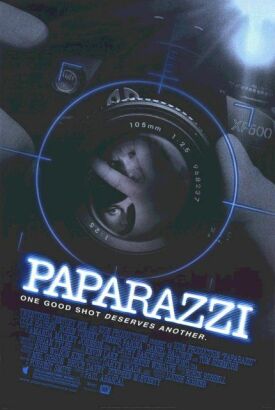Dogma
A couple of months ago I picked Stigmata the front-runner in the
Worst-Movie-of-the Year Stakes, but Kevin Smith’s disastrously awful
Dogma has now blown by it in the stretch and is cantering towards the
finish several lengths ahead of the field. Since his promising debut with
Clerks (1994), Smith has been going steadily downhill in the same way and
for the same reasons as that other enfant terrible of the new New York
style, Edward Burns. Burns went from the amusing if lightweight Brothers
McMullen (1995) to the merely boring She’s the One (1996) to the
truly appalling No Looking Back (1998). Smith has followed a similar
progress through Mallrats (1995) and Chasing Amy (1997), now
hitting rock bottom and for very much the same reason that Burns did:
self-indulgence. A modest success gave them both the self-conceit of great and
brilliant artistry, so that they lost all capacity for self-criticism.
Or so I surmise. Smith’s new film begins with a disclaimer (the fact that the
disclaimer also comes with a dictionary definition of the word “disclaimer”
suggests the sort of semi-literate he must be trying to appeal to) suggesting
that religious believers who may be offended by his movie look at the
duck-billed platypus and consider that God must have a sense of humor. Then he
offers another disclaimer, apologizing to the “noble” platypus. It is the last
moment in the picture that even gets close to being funny. What follows is
indeed offensive, but not because it makes light of sacred things. Rather, its
attempted lightness lumbers across the screen like a wounded hippopotamus and
offends the sense of humor it pretends to appeal to.
More seriously, it evinces the same failure of imagination that I have often
had occasion to remark on in the films of the latter-day Disney. But where the
Disneyites limit their failures to conceiving of a Pocahontas or a Hercules who
is indistinguishable from a late 20th century American teenager, Smith takes his
failure metaphysical. He cannot even imagine God and His heavenly hosts, the
Thrones, Dominations, Princedoms, Virtues, Powers (as Milton says) that make up
the hierarchy of angels, as anything other than foul-mouthed, sex-obsessed,
dope-smoking slackers like himself. So he joins the company of boors and bores
and philistines who live and die in the unexamined and untroubled certainty that
all that are, in this world or the next, and that are blessed with the gift of
consciousness are just like them.
There is no excuse for such wilful blindness. We all have parents and
grandparents who can attest that not just the far corners of the world but even
our own home towns were immensely different only 30, 40, 50 or 60 years ago. We
only have to ask. Smith’s making his God-in-two-persons a mute Alanis Morissette
and an old man (Bud Cort) who vacations in Jersey so that he can play ski-ball
is not inconsistent enough with our idea of God even to be particularly funny,
but it does accomplish the main purpose of the film which is defiantly to
proclaim that the taste and understanding of Kevin Smith are or ought to be the
standard for the entire universe.
What vulgar arrogance! This movie is the cinematic equivalent of those people
who drive with their windows down and some exquisitely awful pop or rap music
blaring from their car speakers. The whole world must listen to what they listen
to. Because they are incapable of appreciating anything better than this
rubbish, they must eke out their meagre pleasure in it by forcing the rest of
the world to join in and listen with them. Such selfishness and stupidity, of
course, do no harm to the higher things they despise, let alone to God, but they
are offensive to the life of the mind and the imagination. Smith’s execrable
film is not only not funny, it is boredom cubed, defiant narcissism carried to
the limits. What kind of spiritual pygmies could possibly be interested in such
stupefyingly idiotic fantasizing? I am genuinely puzzled and would be glad to
hear from anyone willing to defend what I regard as the definitive piece of
cinematic trash.
Discover more from James Bowman
Subscribe to get the latest posts to your email.







